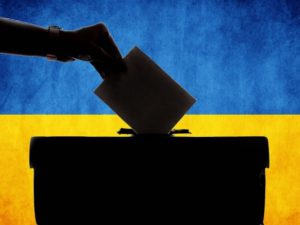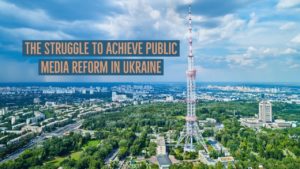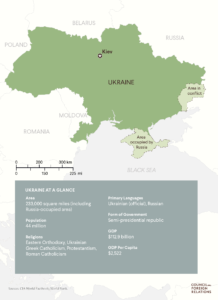
Tech 4 Dem
President Petro Poroshoenko and comedian Volodymyr Zelenskiy, the two candidates in Ukraine’s runoff presidential election, face off in an official debate in Kiev on Friday (RFE/RL:CFR). The vote will be held on Sunday.
Poroshenko’s Ukraine, a hostile country that has turned its back on Russia to look toward NATO, was a useful bogeyman for Russian domestic politics, an example of what route not to follow, analyst Alexander Baunov writes for Foreign Policy (HT: FDD):
Under a President Zelensky, Ukraine would go from being a foreign-policy problem for Russia to becoming a domestic one. An amiable, fresh young president with a sense of humor, who is focused on domestic issues, would become—in the eyes of an indeterminately large proportion of Russians—an alternative to Putin. To ward this off, Putin will have to attack Zelensky from the same positions that his enemy Poroshenko has taken: as a comedian, the oligarchs’ stooge, an inexperienced politician.
 Ukraine’s new president could regain control over the separatist-controlled east of his country within months and get cheap gas and major investment from Russia if he does a deal with Moscow, the Kremlin’s closest ally in Ukraine said, Reuters adds (HT: FDD).
Ukraine’s new president could regain control over the separatist-controlled east of his country within months and get cheap gas and major investment from Russia if he does a deal with Moscow, the Kremlin’s closest ally in Ukraine said, Reuters adds (HT: FDD).
The U.S. Department of State, Bureau of Democracy, Human Rights, and Labor (DRL) has announced an open competition for organizations interested in submitting an application for a program that helps civil society organizations address violence and societal intolerance towards activists in Ukraine:
- The project should help civil society organizations (CSOs) address the growing violence, hate crimes, and societal intolerance towards civil society activists and vulnerable minority groups, such as ethnic, religious, LGBTI, in Ukraine, as well as the proliferation of extremist groups, which threatens the development of a pluralistic and peaceful Ukrainian democracy.
-

Credit: CFR
The program should improve understanding of these problems through monitoring and reporting efforts and public education campaigns, and facilitate joint efforts by CSOs and the Ukrainian government to develop and implement tools to address radicalism and violence.
- Activities may include: capacity building and other support of CSOs and CSO networks dedicated to addressing radicalism and violence both at the national and local levels; advocacy at the national level to adopt and implement policies and laws that improve protection of civic activists and socially vulnerable groups; legal assistance and strategic litigation; and public discussions and media campaigns.
Funding Ceiling (highest $$ value): $900,000 – RTWT







